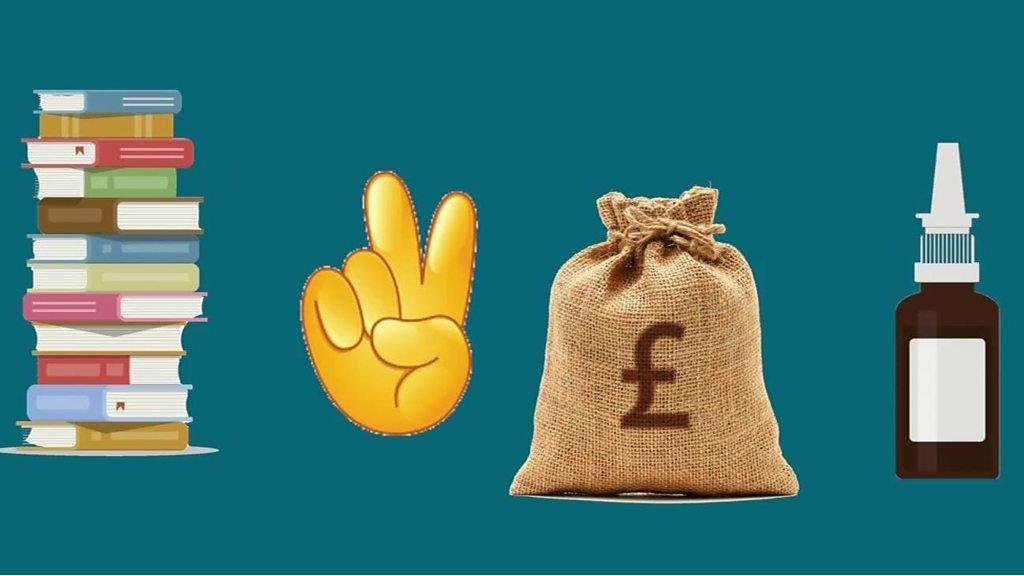Nadia Murad - from rape survivor in Iraq to Nobel Peace Prize
- Published
WATCH: Nadia Murad was held captive as a sex slave by so called Islamic State - she tells the BBC's HardTalk how she escaped
Nadia Murad is an Iraqi Yazidi who was tortured and raped by Islamic State (IS) militants and later became the face of a campaign to free the Yazidi people.
In 2014, she was captured and endured three months as a sex slave at the hands of the militants after they swept through the area of northern Iraq where she lived with her family.
She was bought and sold several times and subjected to sexual and physical abuse during her captivity.
She became an activist for the Yazidi people after escaping in November 2014, campaigning to help put an end to human trafficking and calling on the world to take a tougher line on rape as a weapon of war.
She is the first Iraqi to win the Nobel Peace Prize.
How was she captured?
She was 21 when IS militants attacked her village in northern Iraq, close to the border with Syria. The militants killed those who refused to convert to Islam, including six of her brothers and her mother.
After being captured, she was taken by force to Mosul, the de facto "capital" of IS' self-declared caliphate.
There she was forced to convert to Islam and sold repeatedly for sex as part of IS' slave trade.
In a 2017 memoir about her ordeal, she wrote: "At some point, there was rape and nothing else. This becomes your normal day."
She initially tried to escape, but was immediately caught by one of the guards, she told the BBC in an interview in 2016.
Who helped her escape?
Under their rules, she said, a captured woman became a spoil of war if she was caught trying to escape. She would be put in a cell and raped by all the men in the compound.
This is what happened to Ms Murad, who says the militants called this practice "sexual jihad".
She says after this, she could not think of trying to escape again.
But later, the man she was staying with in Mosul, who lived alone, told her he was going to "sell" her on to someone else. Ms Murad said she had managed to leave the compound and stopped at a house to ask for help.
The Muslim family there said they had no connection with IS and helped her to escape. She managed to cross into Iraqi Kurdistan and found refuge in camps with other Yazidis. She later reached Europe and now lives in Germany.
How else has she been honoured as a campaigner?
She has continued to campaign for the thousands of women who are still believed to be held captive by IS.
She was awarded the Vaclav Havel Human Rights Prize by the Council of Europe in 2016, and called for an international court to judge crimes committed by IS in her acceptance speech in Strasbourg.
That same year, she was also awarded the Sakharov Prize for Freedom of Thought by the European Parliament.
She was named the UN's first goodwill ambassador for survivors of human trafficking later that year.
It was the first time a survivor of atrocities was awarded the distinction, the UN said at the time.
- Published5 October 2018
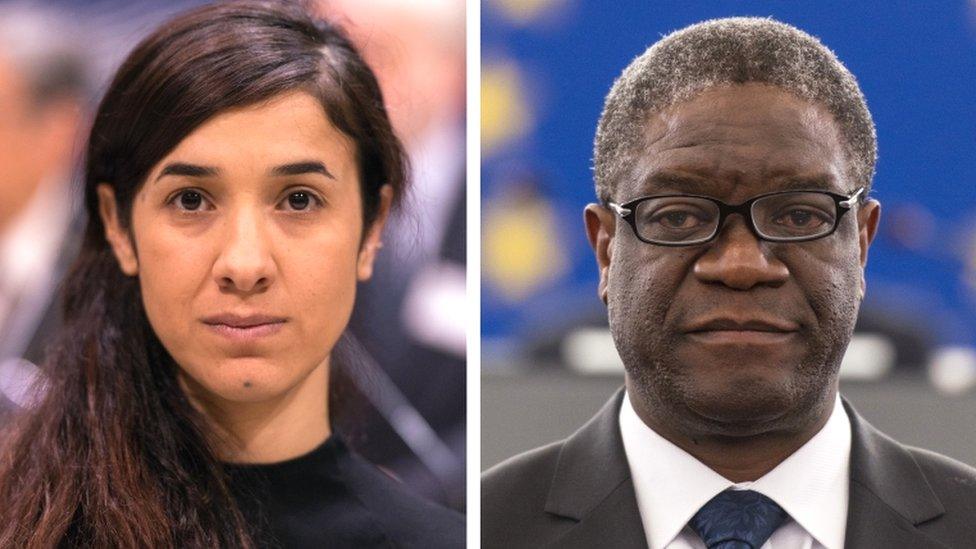
- Published20 August 2018
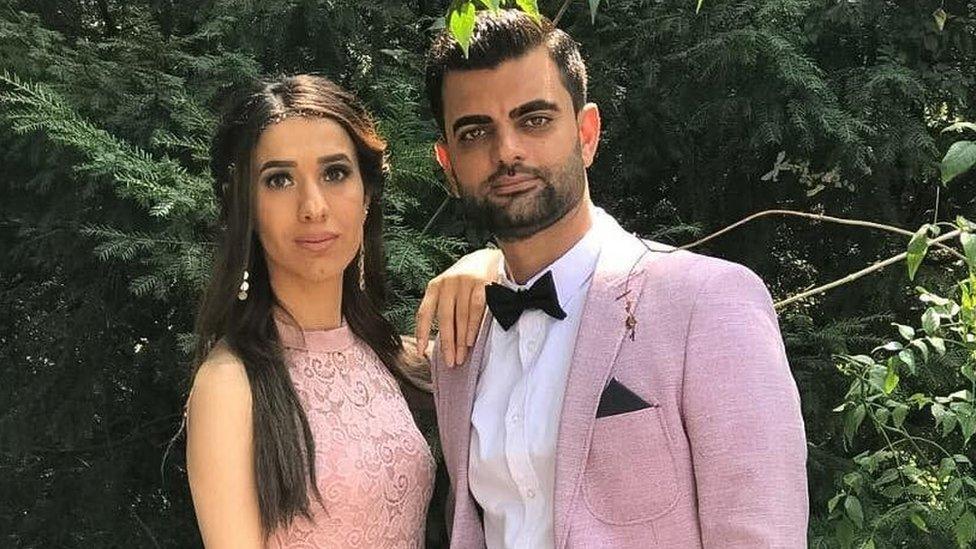
- Published16 September 2016
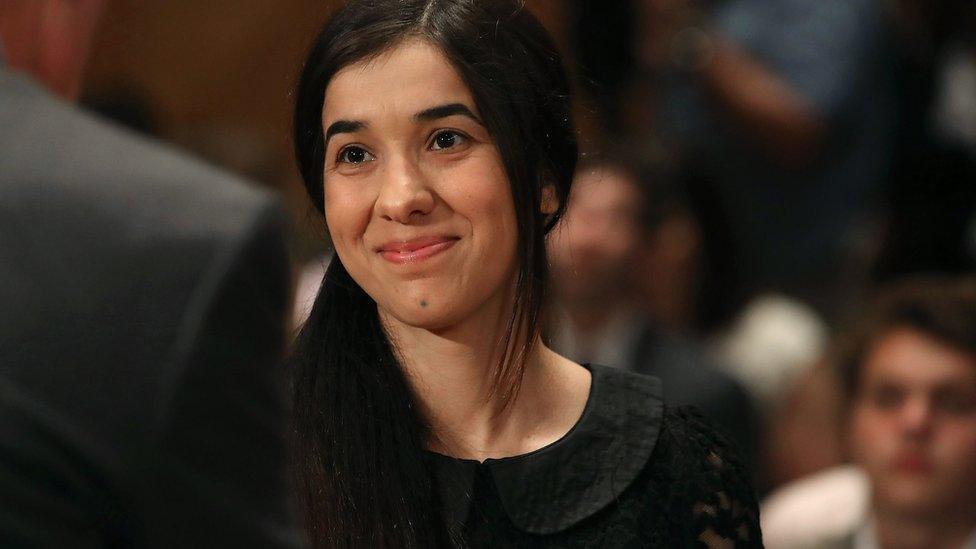
- Published29 February 2016
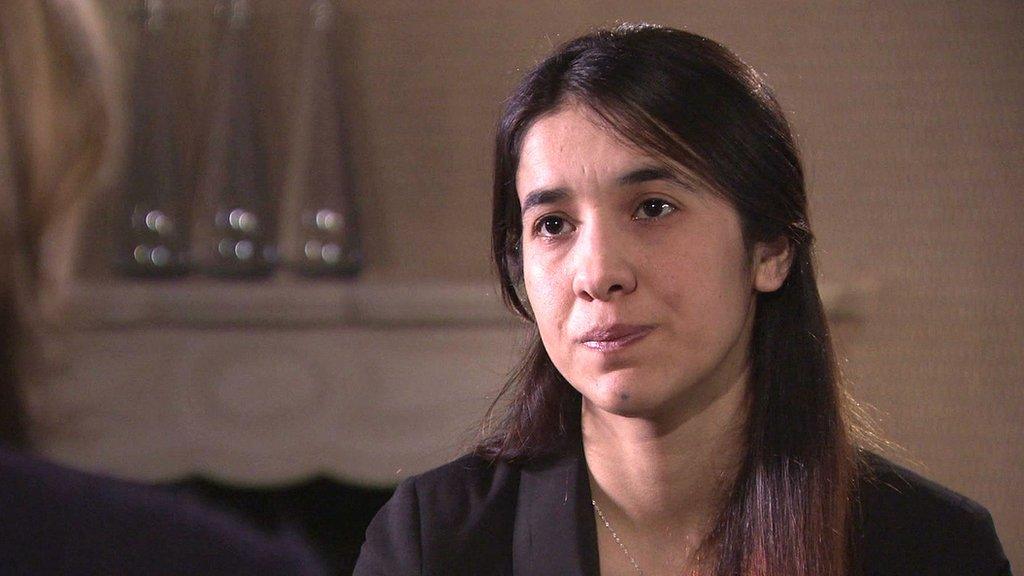
- Published5 October 2017
